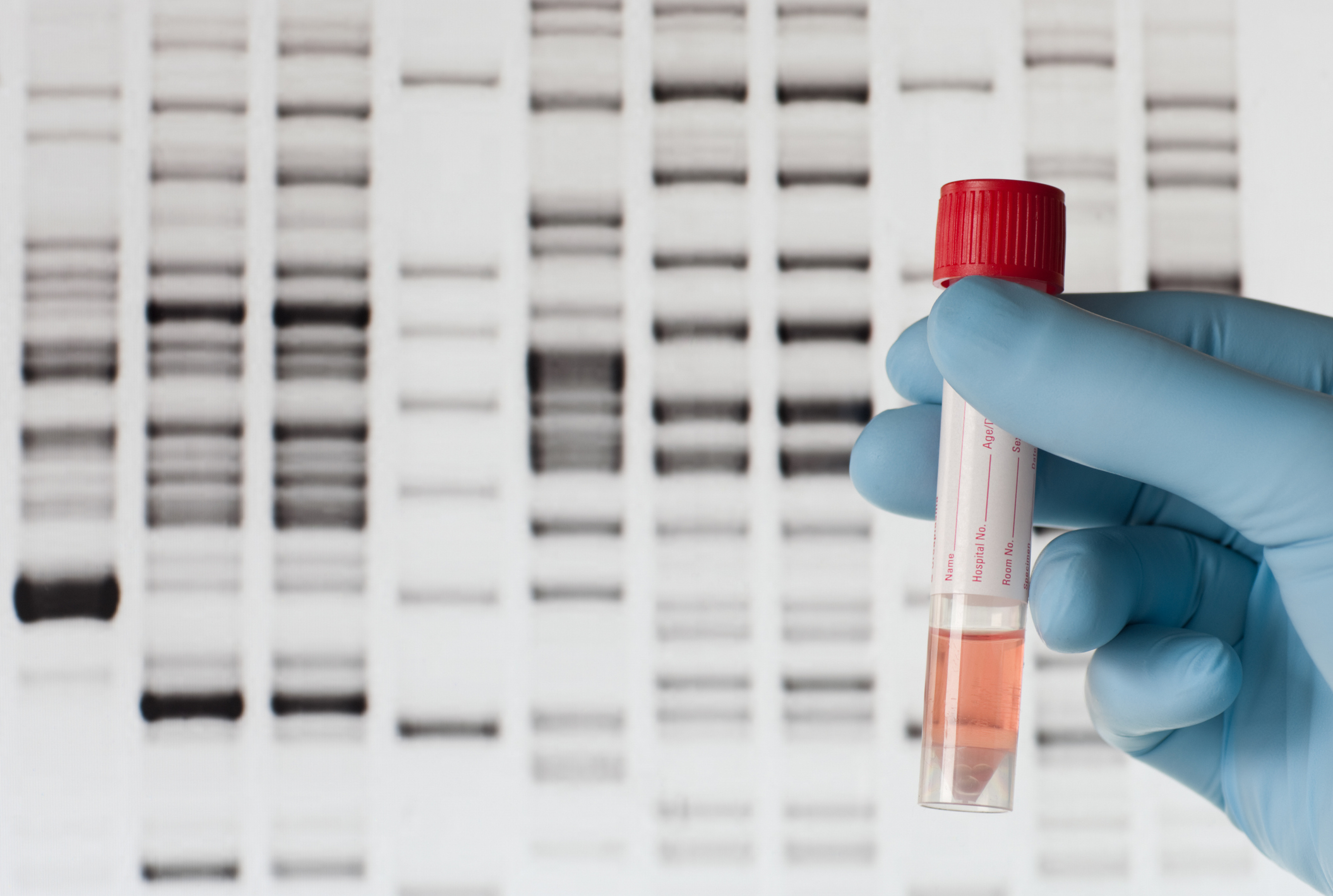Genomics stocks are companies involved in the study of genes to improve people's lives. These companies generally fall into one of three categories: genetic sequencing and analysis, genetic testing and diagnosis, and genetic editing.
With technological advancements dramatically improving the cost, accuracy, and time to map a person’s entire genome, many rapidly growing companies are emerging in the genomics sector. This doesn't always lead to financial rewards for investors, but there are several promising genomics stocks that could be long-term winners.

Best genomics stocks of 2026
| Name and ticker | Market cap | Dividend yield | Industry |
|---|---|---|---|
| Natera (NASDAQ:NTRA) | $31.5 billion | 0.00% | Biotechnology |
| Quest Diagnostics (NYSE:DGX) | $20.6 billion | 1.73% | Healthcare Providers and Services |
| Exact Sciences (NASDAQ:EXAS) | $19.6 billion | 0.00% | Biotechnology |
| Ionis Pharmaceuticals (NASDAQ:IONS) | $13.7 billion | 0.00% | Biotechnology |
| Illumina (NASDAQ:ILMN) | $20.7 billion | 0.00% | Life Sciences Tools and Services |
| CRISPR Therapeutics (NASDAQ:CRSP) | $5.0 billion | 0.00% | Biotechnology |
| 10x Genomics (NASDAQ:TXG) | $2.4 billion | 0.00% | Life Sciences Tools and Services |
1. Natera

NASDAQ: NTRA
Key Data Points
Natera (NTRA -3.28%) is an industry leader in cell-free DNA (cfDNA) testing. It focuses on women's health and prenatal testing to detect genetic conditions, as well as tests to detect cancer and monitor organ health. Some of the tests it offers include:
- Panorama, a non-invasive prenatal test.
- Signatera, a tumor-specific assay for individualized cancer care.
- Prospera, a rejection assessment for kidney transplants.
This genomics company has delivered impressive results recently. In the third quarter of 2025, revenue increased by 35% year over year, and the number of tests processed increased by 15%. For the trailing 12 months (TTM) ending Sept. 30, 2025, Natera earned $2.1 billion in revenue and $1.3 billion in gross profit.
Natera is also leveraging artificial intelligence (AI) technology. In August 2025, it launched its own proprietary AI models to drive innovation and enhance clinical decision-making.
2. Quest Diagnostics

NYSE: DGX
Key Data Points
Quest Diagnostics (DGX +0.37%) isn't strictly a genomics stock. It's a diagnostics company with about 8,000 patient access points, the most extensive network in the U.S., and 2,000 Quest patient service centers. It also offers an extensive menu of over 3,500 tests.
In addition, Quest Diagnostics offers a customizable suite of molecular genetic solutions. These include:
- Disease-state and specialty-based genomic testing.
- RNA sequencing (RNA-seq).
- Whole genome sequencing (WGS).
- Whole exome sequencing (WES).
One of the advantages of investing in Quest Diagnostics is that it's in a stronger financial position than most genomics stocks. It's profitable, with net income (TTM) of $963 million for the period ending Sept. 30, 2025. Revenue over that same period was $10.9 billion. It also returns some extra cash to investors in the form of a dividend.
3. Exact Sciences

NASDAQ: EXAS
Key Data Points
Exact Sciences (EXAS -0.01%) developed the Cologuard home test for colon cancer as an alternative to colonoscopies. The company also acquired Genomic Health in 2019, bringing the Oncotype DX cancer diagnostics platform into its product lineup.
Cologuard has been a big revenue driver for this company, but it has been expanding its product lineup. In 2025, it launched Oncodetect, a molecular residual disease test, and Cancerguard, a first-of-its-kind multicancer early detection blood test.
Based on its recent results, Exact Sciences appears to be on the road to profitability, a notable achievement in the genomics market. Year-over-year revenue has been increasing, while net losses have been declining. For the 12-month period ended Sept. 30, 2025, it has pulled in $3.1 billion in revenue.
4. Ionis Pharmaceuticals

NASDAQ: IONS
Key Data Points
Ionis Pharmaceuticals (IONS +0.22%) develops RNA-targeted medicine to treat serious diseases. Along with Biogen (BIIB +1.14%), it developed Qalsody, the first medicine for the genetic cause of amyotrophic lateral sclerosis (ALS). The FDA approved Qalsody in April 2023.
In 2025, Ionis successfully executed its first two independent launches. It plans to launch two more independent breakthrough therapies this year, which could lead to substantial revenue growth.
Ionis has taken a net loss (TTM) of $256 million for the period ending Sept. 30, 2025. While it hasn't been profitable so far, Ionis has several promising products in its drug pipeline and partnerships with large pharmaceutical companies, and it expects to achieve cash flow breakeven in 2028.
5. Illumina

NASDAQ: ILMN
Key Data Points
Illumina (ILMN +0.43%) develops DNA sequencing and array-based life sciences technologies. Its sequencing technology, sequencing by synthesis (SBS), uses a proprietary method to detect single bases as they're incorporated into growing DNA strands.
Sequencing volumes are growing for research use and clinical applications, including whole-genome sequencing, cancer testing, and recurrence monitoring. Illumina offers several popular sequencing products, most notably its NovaSeq X platform.
While Illumina's revenue has been flat recently, it's a profitable business, with $703 million in net income (TTM) for the period ending Sept. 30, 2025.
6. CRISPR Therapeutics

NASDAQ: CRSP
Key Data Points
7. 10x Genomics

NASDAQ: TXG
Key Data Points
Related investing topics
Investing in genomics stocks
Technological advancements have made genomics an exciting area for investment. All three broad categories encompassing genomics are expected to grow significantly as well. Here are recent forecasts:
- The global gene sequencing market is projected to grow at a compound annual growth rate (CAGR) of 16.2% and reach $101.9 billion by 2034, according to Towards Healthcare.
- The market for genetic testing services is expected to grow at a 22.6% CAGR and reach $91.3 billion by 2034, according to BioSpace.
- The gene-editing market is forecast to grow at a 17.0% CAGR and hit $45.0 billion by 2034, according to Towards Healthcare.
The rapid growth expected in the genomic segments means there could be many winners. Investors can start by picking a company from the segment they find most attractive. Alternatively, investors can consider a basket strategy of putting money into several companies and watching them closely over several years.
Remember that progress is frequently sporadic with genomics companies. A buy-and-hold strategy is essential to give your holdings time to mature and pay off.
Pros and cons of investing in genomics stocks
Here are the biggest benefits of investing in genomics stocks:
- Genomics as a whole has significant growth potential. As the projections earlier showed, double-digit growth is expected for all three genomics markets.
- Companies that make major breakthroughs in treatments, diagnostics, or gene therapies deliver outsize returns to investors.
- There's always a need for new, innovative medical treatments. Like other healthcare companies, genomics companies typically have a high demand for their products and services.
- In addition to healthcare, genomics also has other applications, including crime scene forensics and the improvement of agricultural products.
However, there are also some notable downsides to know about before you invest:
- Genomics stocks can be highly volatile. Prices often remain stagnant for long periods, then suddenly surge or plummet rapidly in response to a single piece of news, such as the outcome of a clinical trial.
- These aren't the easiest businesses to understand, considering many are founded by serious researchers, including Nobel Prize winners. Investors who want to stick to what they know often avoid this sector, unless they have experience in it themselves.
- Many genomics companies operate at a loss for years during research and development (R&D) phases. This is another reason they're high-risk investments.
Related investing topics
How to buy genomics stocks
When you know which genomics stock you want, here's how to invest in it:
- Open your brokerage app: Log in to your brokerage account where you handle your investments.
- Search for the stock: Enter the ticker or company name into the search bar to bring up the stock's trading page.
- Decide how many shares to buy: Consider your investment goals and how much of your portfolio you want to allocate to this stock.
- Select order type: Choose between a market order to buy at the current price or a limit order to specify the maximum price you're willing to pay.
- Submit your order: Confirm the details and submit your buy order.
- Review your purchase: Check your portfolio to ensure your order was filled as expected and adjust your investment strategy accordingly.





